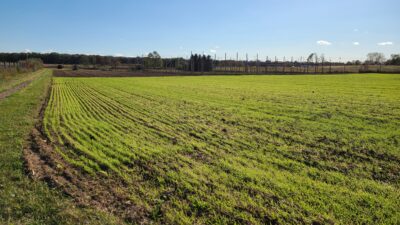Blog
News from the Condzella Farm in Wading River
By Olivia Waterhouse
There are far worse ways to end a week than joining the Condzella family for a walking tour of their farm in Wading River.
This Earth Day, we hope to complete a year-long fundraising campaign to purchase the development rights on 38-acres of farmland, ensuring that it’s forever protected for agriculture. The Condzellas currently farm much of the land we’re striving to protect. We wanted to check in with the family and learn a bit more about how they care for this land and why they’re committed to its conservation.
In the golden, Friday afternoon light, I met my guides -John, Ginny, their daughter Katherine, and friendly black lab named Biddy- outside of the farm’s century-old barn. We started by making our way through the recently mowed asparagus fields, where Ginny noticed the very first purple asparagus frond poking out from the earth. Just a few weeks away, May will be a mad dash to keep up with nature. Every other day the Condzellas will harvest the crop - cutting and bundling the 6-inch spears by hand for sale at the farmstand and local markets. “You can almost see them grow before your eyes”, Ginny says with a mix of wonder and anticipated exhaustion.
![block.image[0].title](/assets/images/Asparagus-frond.jpg)
The family tries to do everything “the good old-fashioned way,” she explains. They recently invested in a baler so they can stop purchasing hay. Instead, this will be the first year that the straw mulch, which keeps strawberry plants insulated through the winter and the berries high and dry even in a soggy spring, will be grown, baled, dried, and used here on the farm.
In the warmth of the late afternoon sun, the bees were beginning to leave their hives in search of pollen. They had made it through the winter by huddling together inside, leaving only to eat the sugar-paste fondant cakes the family leaves on top of their cozy wooden boxes. A few feet away, they had planted a field of rye to feed them over the coming months. As we walked, Katherine listed off other favorites they planned to grow – buckwheat, mustard, borage. People don’t realize how much it takes to raise bees, she explains, “you really have to take care of them.”
![block.image[0].title](/assets/images/Bee-Boxes.jpg)
It’s not just the plants and pollinators that need care, but the soil itself. It’s hard not to chuckle when you first see the hop fields. A cover crop of mustard and turnips had been planted to reduce erosion and nourish the land. A few weeks ago, John Jr. had tilled the soil, churning the roots and greens into the ground. They provide nutrients, Ginny explains, and help aerate the soil.
The Condzellas are proud to be the first farm on Long Island to grow hops. They planted the vines at the urging of their son, John. The cauliflower and potatoes grown by his great-grandparents haven’t been profitable for decades. Instead, the family has had to rely on a combination of hard work, care, and creativity to keep the farm “going and growing,” as Ginny says.
Almost as an afterthought, John prompts Katherine to show us the greenhouse. He smiles with pride as she tells us about a new strawberry variety they’re growing. Over the winter, she’s turned a handful of seedlings into over 1,200 plants that will soon be ready to go in the ground. She lights up when she describes the fruit – juicy, beautiful, “good eating”- of this aptly-named cultivar, L’Amour. They’ll have to wait to enjoy the fruits of her labor, and the family’s investment, as the plants won’t produce berries until their second year.
Time means something different to a farmer. It’s the careful planning of eight different blueberry varieties (and seven different strawberries) so that there’s always ripe fruit to be picked and it’s the daily race to harvest asparagus before the tender stalks turn into 6-foot trunks. It’s also the trust and confidence in planting a field that won’t make it to market for years or may not be profitable for a decade.
Here at the Trust we often talk about stewardship – how we can best protect and care for the natural world we so cherish. These same conversations happen here on the farm. To the Condzellas, stewardship means thinking about the years that stretch beyond their own tenure here. Caring for this land is what they do, and that means protecting it for agriculture forever. I’m so glad to be a small part of this effort. This Earth Day, I hope you’ll join us too!
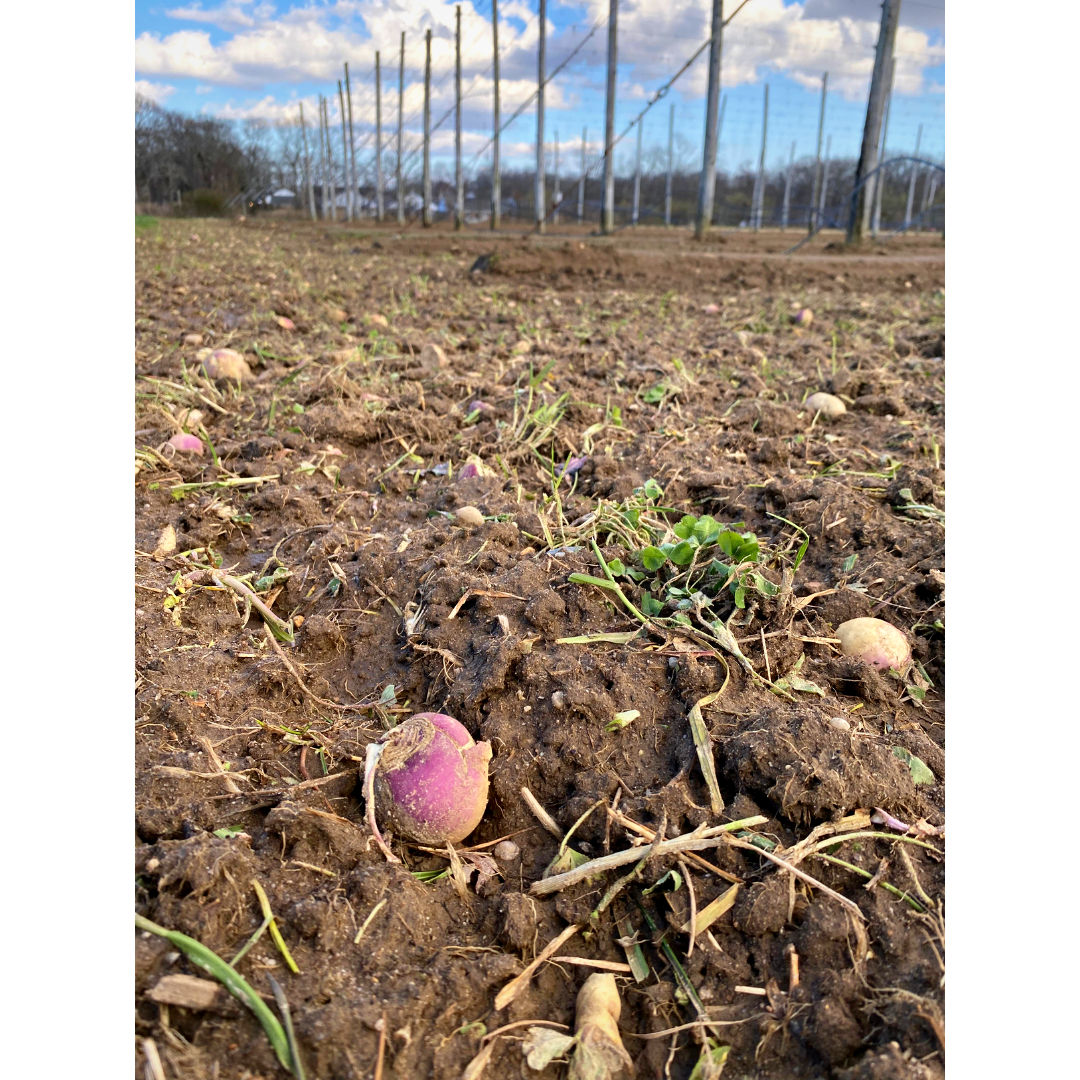
Cover crops help reduce erosion and nourish the land. Turnips and mustard greens were planted in between the hop vines, then tilled into the ground to make a healthier and better-aerated soil.
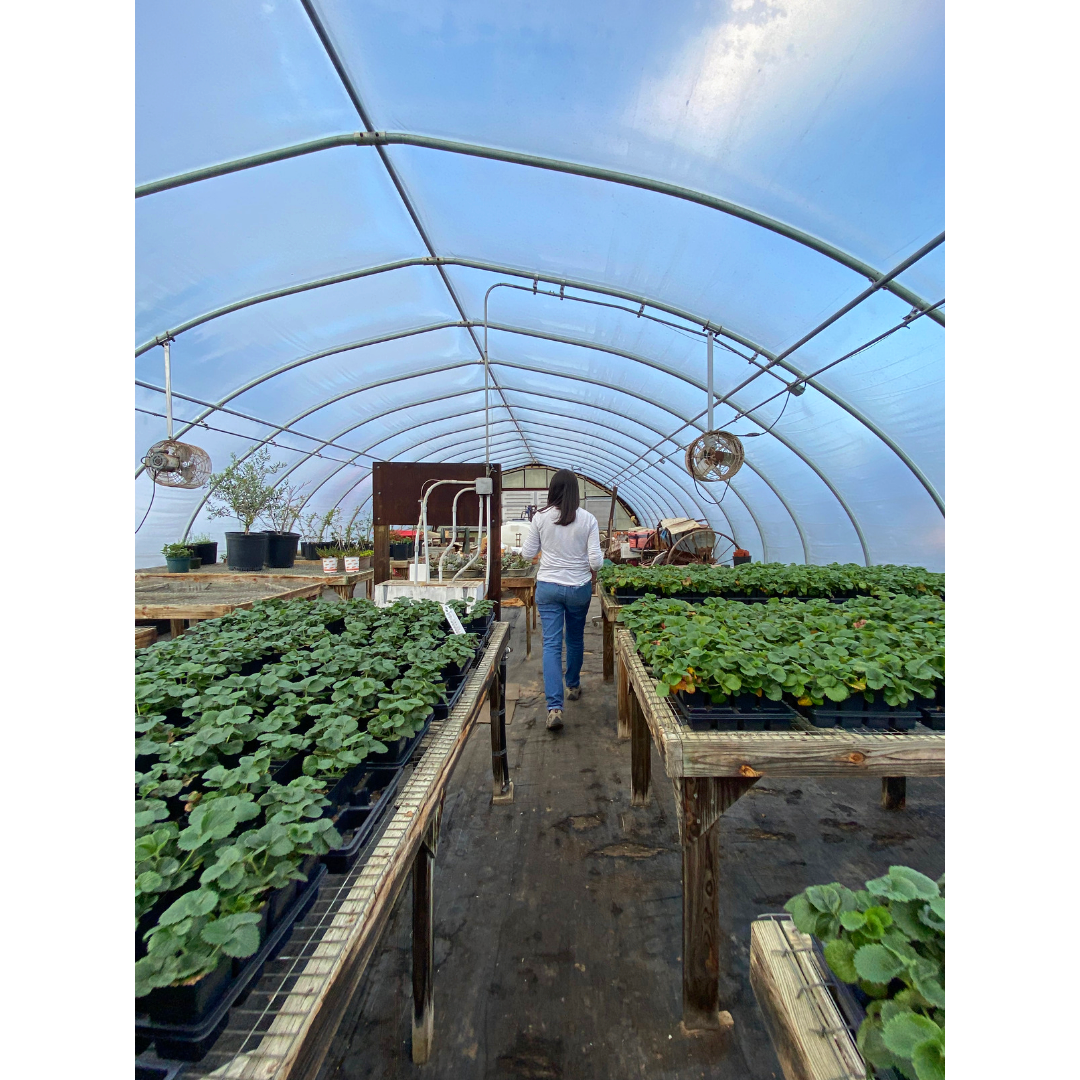
Katherine has turned a handful of seedlings into over 1,200 plants that will soon be ready to go in the ground. They’ll have to wait to enjoy the fruits of her labor, and the family’s investment, as the plants won’t produce berries until their second year.
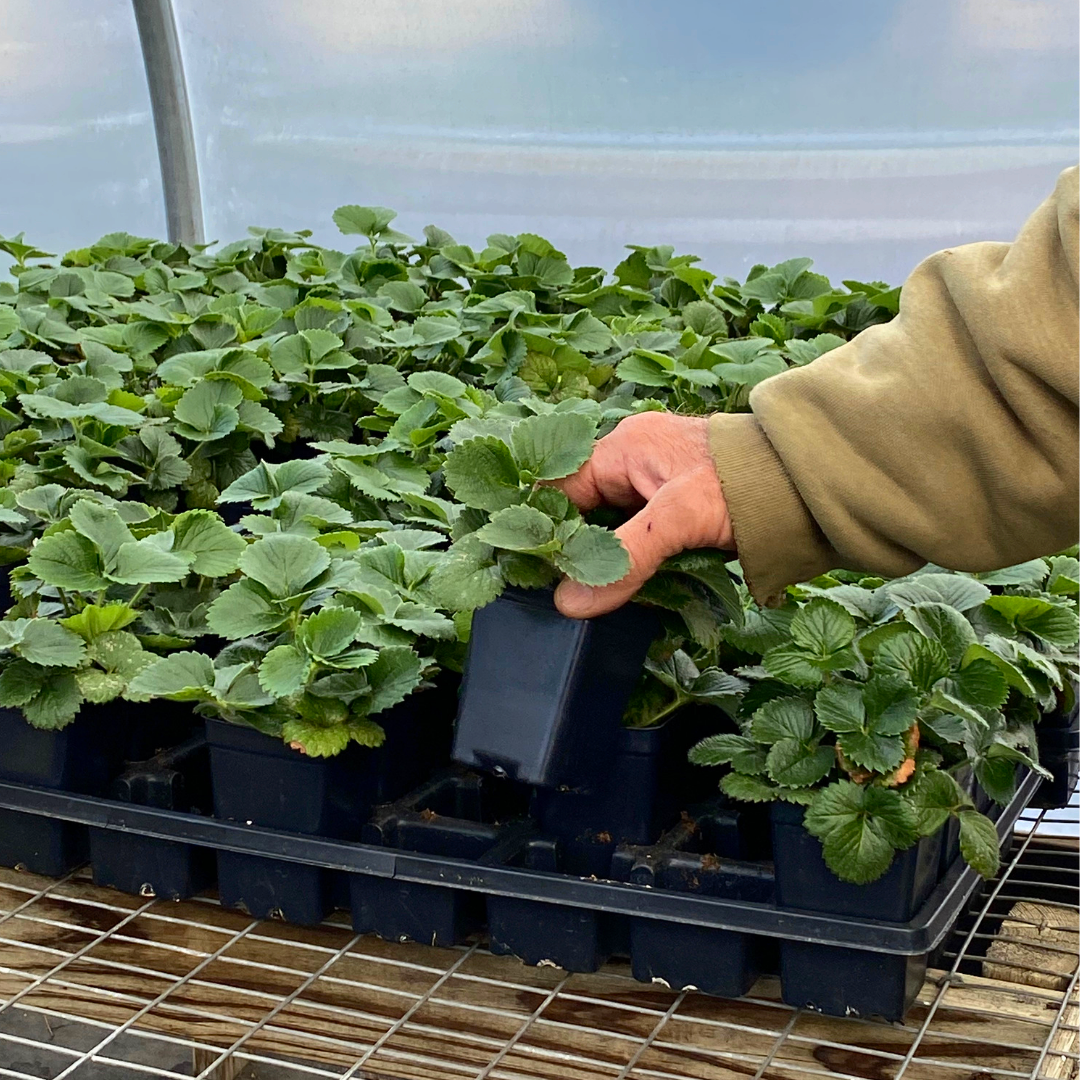
John shows off the new strawberry variety grown by daughter, Katherine.
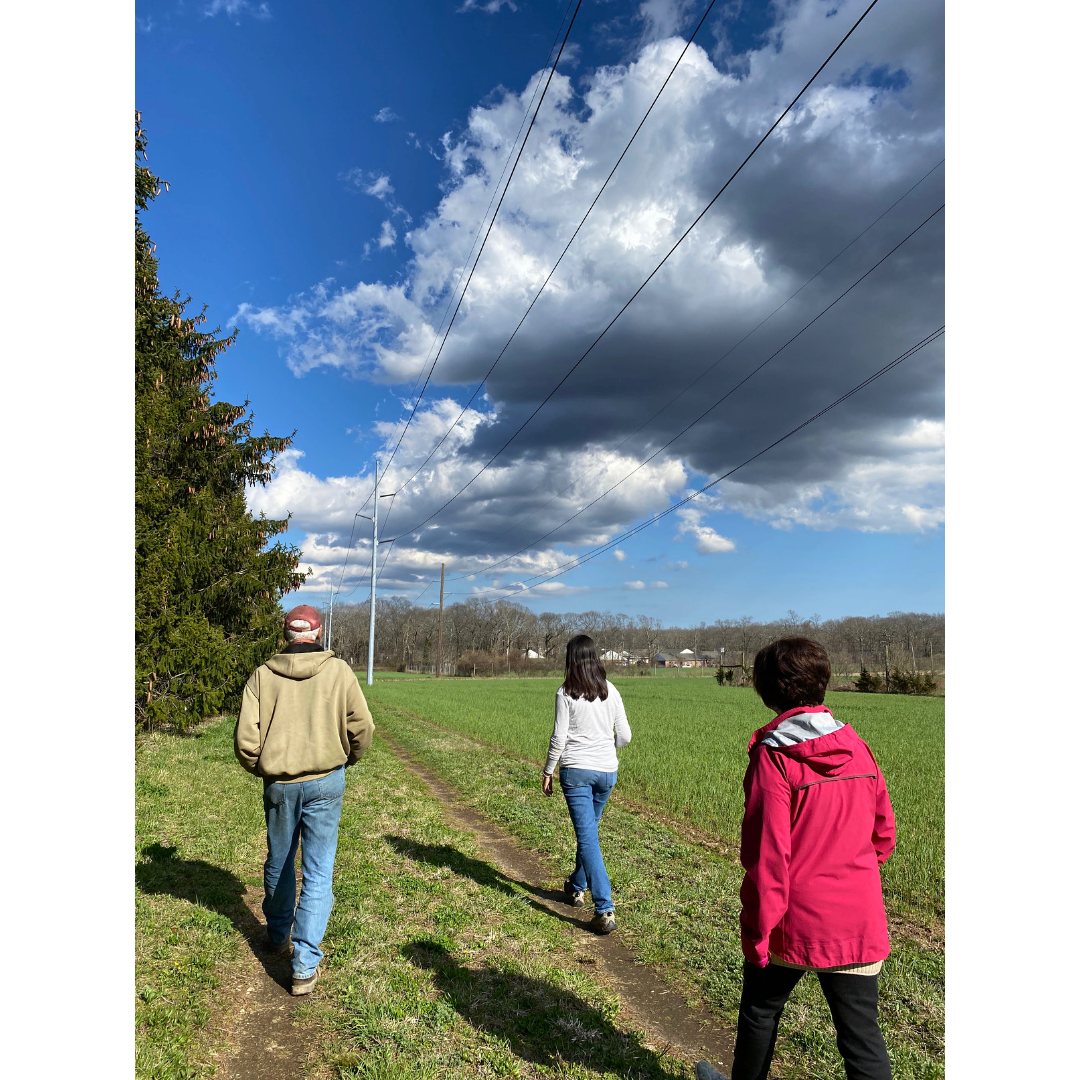
John, Ginny, and daughter Katherine walk the fields. The family tries to do everything "the good old-fashioned way," and value their close relationship to the land they care for.


